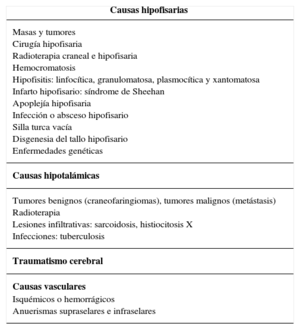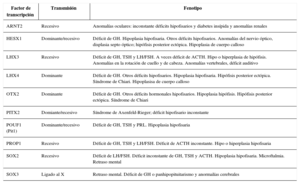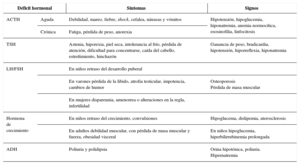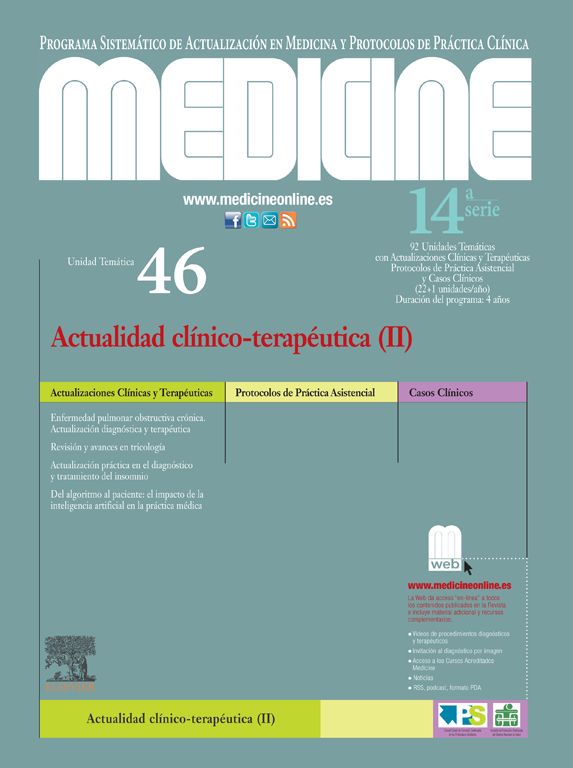Las causas que producen hipopituitarismo son múltiples y pueden ser primarias por afectación o disfunción de la hipófisis, o secundarias por alteración del hipotálamo o del tallo hipofisario.
Manifestaciones clínicasLas manifestaciones clínicas son muy variables, dependiendo del número de ejes que se afecten, la rapidez de instauración y la edad del paciente.
DiagnósticoEs importante un diagnóstico y un tratamiento precoces por su alta morbilidad y mortalidad. El diagnóstico de déficit hormonal se realiza midiendo los niveles basales de hormonas, excepto en los déficits de ACTH y de GH que precisan pruebas dinámicas.
TratamientoEl tratamiento del hipopituitarismo es de por vida, con seguimiento médico y ajuste del tratamiento hormonal en función de la valoración clínica y de la determinación hormonal basal, excepto en el déficit de ACTH, en el que el seguimiento fundamentalmente es clínico.
Palabras clave
There are multiple causes of hypopituitarism and they can be primary, due to pituitary involvement, or secondary, due to disorders of the hypothalamus or the pituitary stalk.
Clinical manifestationsClinical manifestations are highly variable and they depend on the number of affected axis, the speed of onset and the age of the patient.
DiagnosisEarly diagnosis and treatment is important because of its high morbidity and mortality. Hormone defficiency diagnosis is performed by measuring baseline level of hormones, except for ACTH and GH deficiencies that require dynamic tests.
TreatmentTreatment of hypopituitarism is forever, with medical follow-up and hormone replacement therapy adjustment, according to clinical evaluation and baseline hormone levels, except for ACTH, which is mainly clinical monitoring.
Keywords
Identifíquese
¿Aún no es suscriptor de la revista?
Comprar el acceso al artículo
Comprando el artículo el pdf del mismo podrá ser descargado
Teléfono para incidencias
De lunes a viernes de 9h a 18h (GMT+1) excepto los meses de julio y agosto que será de 9 a 15h






